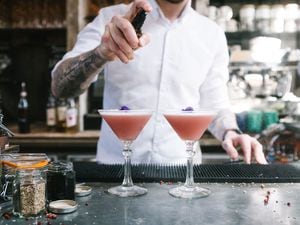Foraging in the British countryside is foodie fun
The next time you walk down a country lane or canal towpath, through local woodland, along a river bank or go rambling in the countryside; stop for a moment and look around. You'll be amazed by what you might find that's edible! Be sure to take a guide book too – you could be looking at your next dinner!

Foraging has become a very trendy thing to do. It is fashionable at the moment for chefs to go out collecting wild ingredients and title themselves foragers. But the truth is, we have been scouring the countryside, picking, cooking and eating what we find for a long time.

Twenty years ago, I worked part-time at a restaurant in Bristol where the chef was a keen forager and was really into his fishing. He would be out every morning fishing and foraging and would serve what he caught and gathered that day in his restaurant.
One of the world's greatest restaurants, Noma, in Denmark, has popularised foraging. The chefs there collect and use ingredients that are native to the area of the restaurant and it is one of the biggest success stories of foraging in the last decade. Restaurants like Noma are trend-setters and have influenced many other restaurants and chefs all around the world.
One of my favourite restaurants in the UK is Restaurant Sat Bains, in Nottingham. It has two Michelin stars and is at the cutting edge of modern British gastronomy. The chef/owner is Sat Bains and the dishes he invents, cooks and serves are on another level. He actually employs a forager who goes out and finds new, uber – local and unusual ingredients for him and his team to use in his kitchen. Sat is so passionate about locally-foraged food he created a dish with the title "NG7" – the restaurant's postcode. It features ingredients just foraged within the postcode of the restaurant, which is amazing considering the location is quite industrial. It opens people's eyes and minds as to what is available out there.
To give you an idea, some of the foraged ingredients I have found in the area and used in the last year include wild garlic, watercress, blackberries, elderflower, elderberries, nasturtiums, wild herbs, wild celery, wood sorrel, horseradish and various mushrooms. Foraging can be fun – but don't ever take risks. The golden rule is if you are unsure about what you find do not eat it. Stick to what you know and you'll enjoy a real wild feast.
Will Holland is one of the UK's most successful young chefs. He earned a Michelin star before the age of 30, was named as one of the 10 most influential chefs for the present decade and is the chef-patron of La Becasse, in Ludlow.
Read Will Holland first in your Weekend Express & Star, every Saturday.





